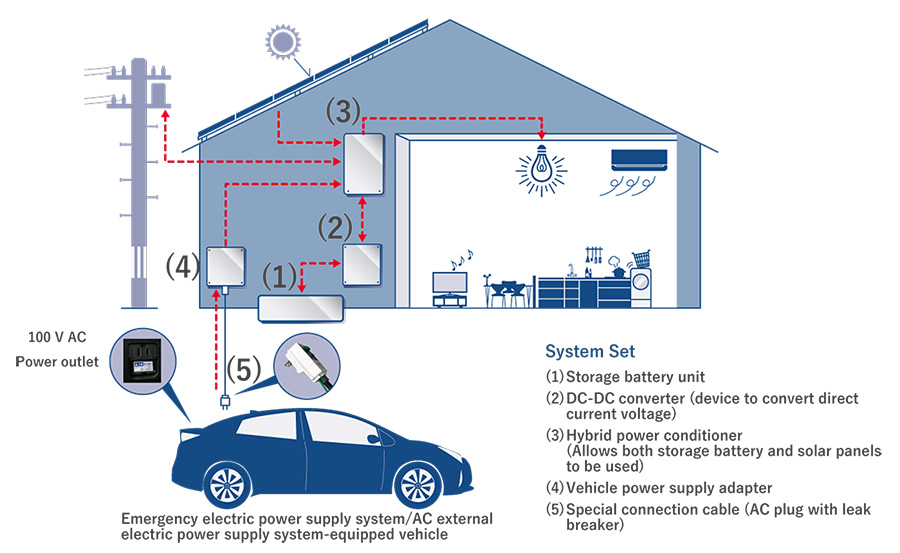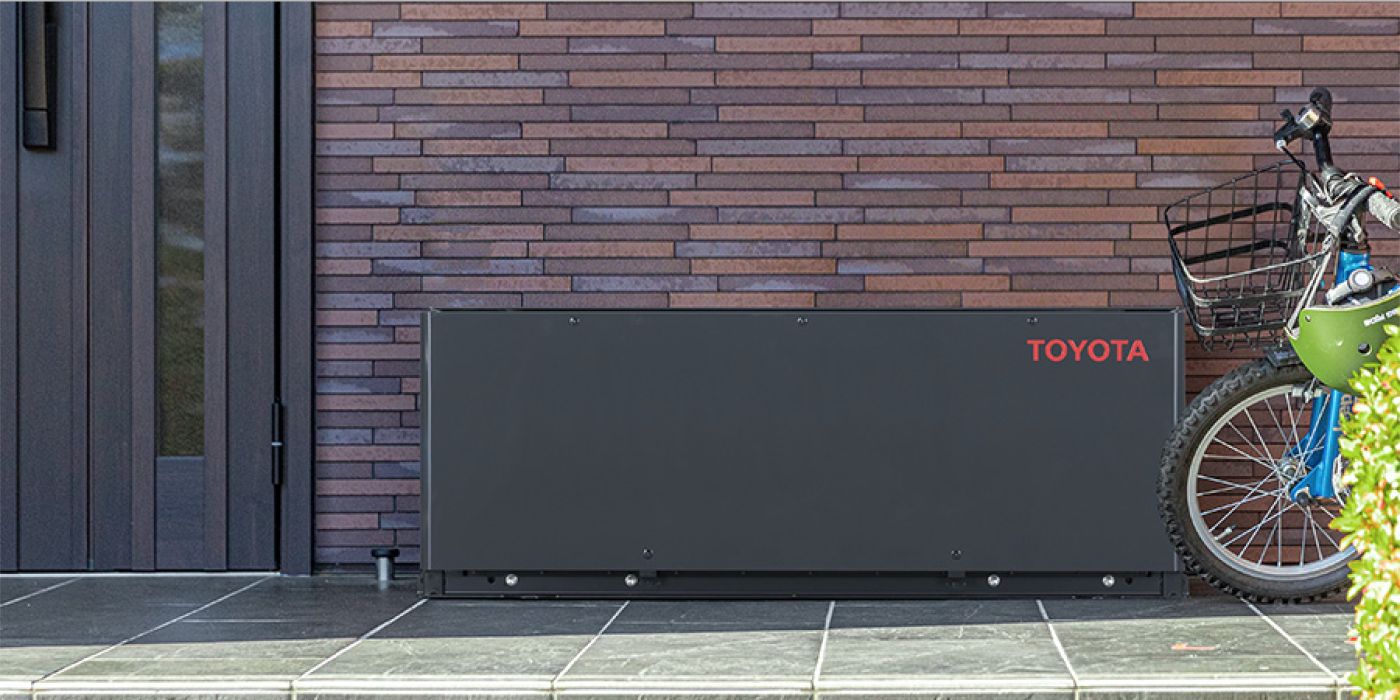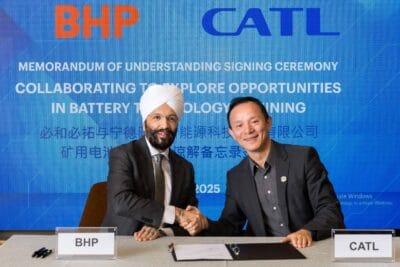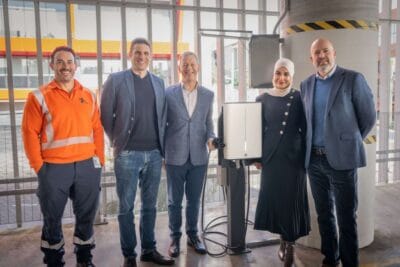Toyota’s smart home charging system with EV tech
Toyota has developed the O-Uchi Kyuden System, a battery system for residential use based on electrified vehicle battery technology. The system features bidirectional vehicle-to-home capabilities.
The home battery system is meant for everyday use, providing off-peak electricity, residential solar power photovoltaic system support, and EV charging. EVs capable of bidirectional power can be used by the system as an emergency power supply during power shortages.
With this kind of system, a vehicle can not only be charged from the home system, thanks to power produced from domestically produced solar power, but electric vehicles can also feed electricity back into the home or other devices (V2X) when grid power is not available. These capabilities also mean the possibility of vehicle-to-grid (V2G) balancing in places where the grid system allows bidirectional charging to balance supply in times of high energy use.
Toyota says the O-Uchi Kyuden System uses electrified vehicle battery technology such as Toyota’s battery control to provide a rated capacity of 8.7 kWh and a rated output of 5.5 kWh.
When linked with a photovoltaic system, the system can supply electricity based on customer needs throughout the day and night. Toyota says the system should encourage the use of domestically produced solar power.

What Toyota says is unique to the O-Uchi Kyuden System is that it supports supplying power from electrified vehicles (HEV, PHEV, BEV, FCEV) at 100V AC as a backup power source during power outages. In Japan, Toyota xEVs can provide electricity via onboard AC (100V) outlets.
Our colleagues at Electrek suppose this product is going to compete with Tesla Powerwall. Tesla launched “Tesla Energy” with the Powerwall and Powerpack in 2015. Several other car manufacturers such as Nissan and BMW have also started leveraging their electric vehicle battery pack technology for residential energy storage.
What Toyota’s press release and numerous articles have not yet revealed is whether the batteries for Toyota’s home system will be (used) second-life batteries from electric vehicles. Commonly, in the life of a battery, electric car batteries have a use-life of 4-6 years after which they operate below 70-80% capacity, which means they can generally get another 2-4 years of use in second life applications before being recycled. The second life of electric car batteries primarily involves uses such as in slower light electric vehicles followed by numerous stationary energy storage applications.
In China, where Toyota is active with with CATL and BYD as well as its Panasonic joint venture Primeerth EV Energy, second life use is translated as “cadence”, “gradient”, or “ladder” use, which also refers to the Chinese policy of “most urgent use first” for electric vehicle batteries. Here, legislation for the reuse and recycling of batteries was recently upgraded to account for the mass of electric vehicle batteries now hitting reuse and recycling markets.
Toyota has already been looking into the recycling and reuse of batteries for some time. Back in 2018, Toyota announced an agreement with Chubu Electric Power to begin investigating potential recycling uses for used batteries, as well as a verification project that would construct a large-capacity battery storage system that would reuse EV batteries. In 2019, the V2G project undertaken by Toyota Tsusho Corporation and Chubu Electric Power Co entered its second year. Here, the two companies worked on a project demonstrating how V2G services can help balance the supply and demand of an electric grid. Numerous vehicle manufacturers are currently ensuring their vehicles have bidirectional charging capabilities in their vehicles that would be able to fully utilize this kind of system.
So far, the O-Uchi Kyuden System is only being launched on the Japanese market. Toyota says that pre-orders for the system have already started and sales in Japan will begin in August through home builders and general construction companies.





0 Comments